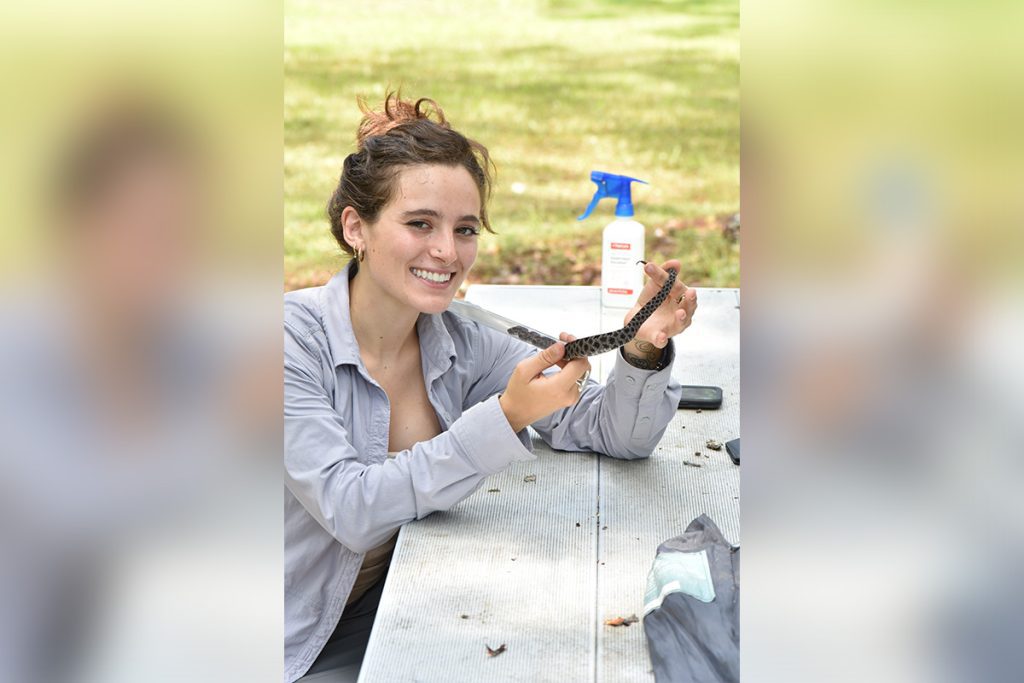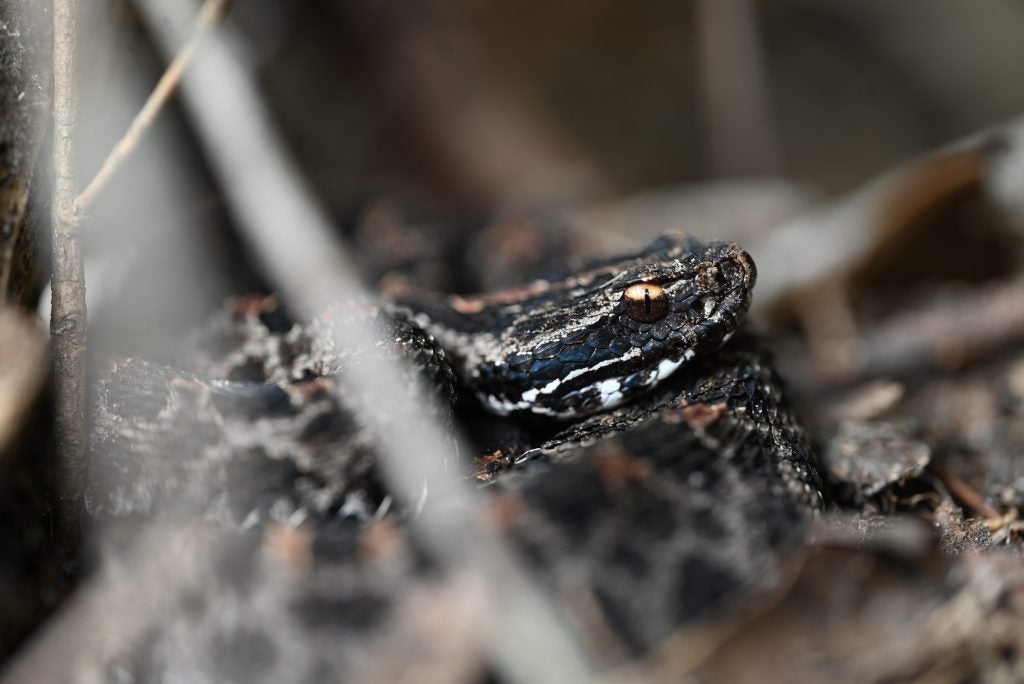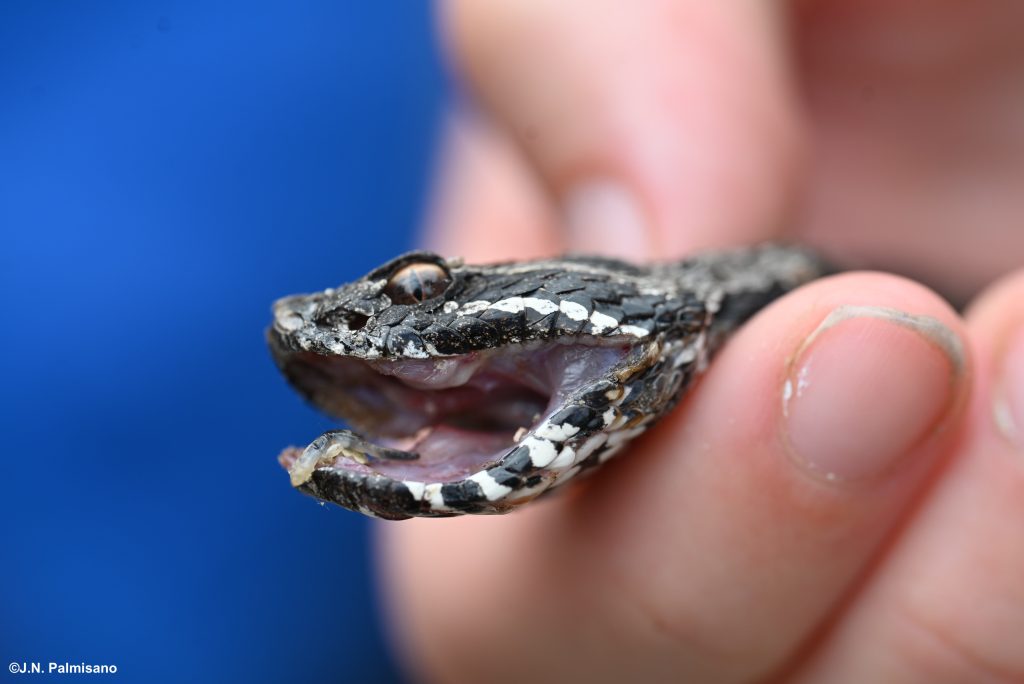PhD. Student’s Research on Snakes is Helping Protect Florida’s Ecosystem
Jenna Palmisano was awarded multiple research grants to expand her research on parasites affecting pygmy rattlesnakes and Florida ecosystems
By: Emily Dougherty | October 28, 2024

Florida has diverse ecosystems that are made up of an array of species, all of which play an important role in the beauty of Florida.
Jenna Palmisano, a doctoral Biology student, has spent her higher educational journey studying reptiles, such as snakes, and the dangers that pose disruption to their natural impact on the environment.
“During my undergraduate career, I conducted experimental infections to understand the life cycle of the invasive snake lung parasite, Raillietiella orientalis, and how it was pervading Florida ecosystems after being introduced by the Burmese pythons in South Florida,” Palmisano says. “My interest was sparked by the parasite’s tremendous ability to expand host taxa and successfully invade the entire peninsula.”
Palmisano shared that she took a particular interest in a specific type of reptile that is seen across the state in various habitats.
“Pygmy rattlesnakes are strikingly beautiful ambush predators facing significant challenges from emerging infectious diseases. I am particularly interested in exploring the molecular influences on their susceptibility to these threats,” she says.

Palmisano says the population of pygmy rattlesnakes play a large role in the lives of other species in state and infectious diseases, such as the lung parasite, and can have ramifications that affect more than just the snakes themselves.
“The lung parasite has been associated with mortality events and population declines in pygmy rattlesnakes. These declines can disrupt ecological balance, highlighting the necessity of maintaining biodiversity and understanding species interdependence,” she says.
Palmisano explained exactly how other species will be affected by this disease.
“As once the most common venomous snake in Florida, pygmy rattlesnakes play a vital role as mesopredators,” Palmisano says. “Their decline can disrupt the balance of the food web, affecting not only their prey but also larger predators that rely on them.”
She shared how she intersected her passion for photography with her research.
“My passion for wildlife photography began as a child, but it truly merged with my scientific work when I started my dissertation on pygmy rattlesnakes. I aimed to capture their beauty and the clinical signs of disease in high resolution to raise awareness of their conservation needs,” Palmisano says.

During the course of her research, Palmisano was awarded a mentorship award from UCF’s Biology department for her work with undergraduate students.
“Working with undergraduate students has enriched my research experience, allowing me to share my passion and learn from their fresh perspectives,” she says.
Along with winning the mentorship award, Palmisano has won multiple grants to continue her research.
“The grants I’ve received have been instrumental for my research on pygmy rattlesnakes,” she says. “They have enabled extensive data collection across Florida, which is essential for developing effective conservation strategies for pygmy rattlesnakes.”
Palmisano hopes others will contribute to preserving Florida’s ecosystem.
“I encourage everyone to appreciate and coexist with Florida’s diverse wildlife,” she says. “Gaining a deeper understanding of these creatures, including snakes, is essential for fostering conservation efforts and maintaining ecological balance.”
To see Jenna Palmisano’s wildlife photography, please visit her Instagram page.
